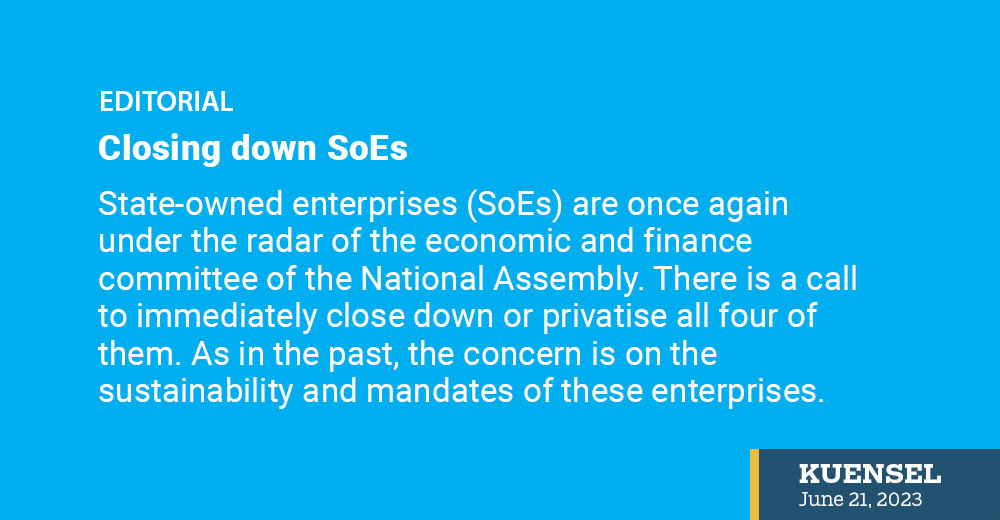State-owned enterprises (SoEs) are once again under the radar of the economic and finance committee of the National Assembly. There is a call to immediately close down or privatise all four of them. As in the past, the concern is on the sustainability and mandates of these enterprises.
The decision is to further review their sustainability and profitability. The debate arises every year when the budget report is presented, particularly when domestic revenue is on the decline.
SoEs have to be sustainable if not profitable, contributing revenue to the emptying government coffers. Relying solely on subsidies to run an SoE is illogical, as is competing with the private sector without adding any value. Notwithstanding the social mandate, SoEs have to be sustainable. The challenge to the status of SoEs by the government or parliamentarians should be welcomed. It is said that the finest steel is forged in the hottest fire.
While we expect SoEs to be put under pressure, it is not as straightforward as many think. Take, for example, an SoE mandated to undertake reafforestation or green our landscape. We can reap the benefits only after a decade or two, but the mandate is important for Bhutan, which has championed environmental conservation. The millions of dollars donated in the name of conservation, even if they don’t trickle down to an SoE, are helping the government. In fact, they are a good bargaining point for the country when seeking funds.
Those who question the mandate of SoEs must have done their background beyond the figures they retrieve. SoEs would do much better without competing and complementing the private sector if they are given the room to perform or grow. There are not many recommendations from our policymakers or parliamentarians on how to make SoEs profitable. Just because FMCL is selling imported machinery, it does not impede a Member of Parliament from selling imported lawn mowers or brush cutters, for instance, and should not be considered as impeding private sector growth.
The recent transformation initiatives, for instance, have helped SoEs reshape and make them competitive. Giving room or independence to SoEs to reshape could be one idea. SoEs are governed by outdated legislation that restricts innovation or growth. While the drive today is on enhancing revenue and cutting costs, labor rules restrict new ideas.
Going by the changes happening in the country, our legislation has to be updated to keep up with the mandates. SoEs are tightening their belts to maximise profit and contribute revenue to the government coffers, but the legislation is not helping them.
Meanwhile, all SoEs are the same, nor will the private sector fulfill the crucial mandates of SoEs. Those of us who grew up relying on subsidized essentials like oil and rice supplied by the Food Corporation of Bhutan should not forget that profit is not the ultimate goal. At a time when inflation is hitting the poorest hard, doing away with fair price shops, for instance, would only benefit a few businesses in the private sector.
SoEs, profitable or not, will play an important role. Whether to shut them down or not is the government’s call. Considering the consequences is also the government’s responsibility.


